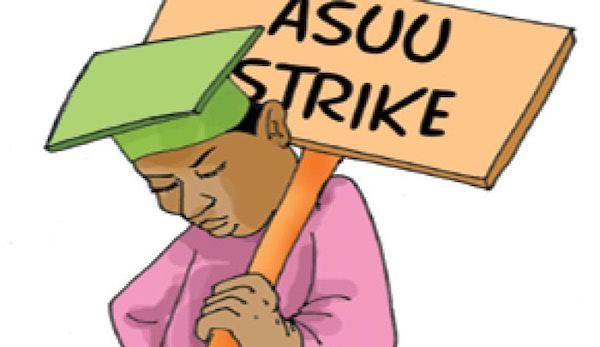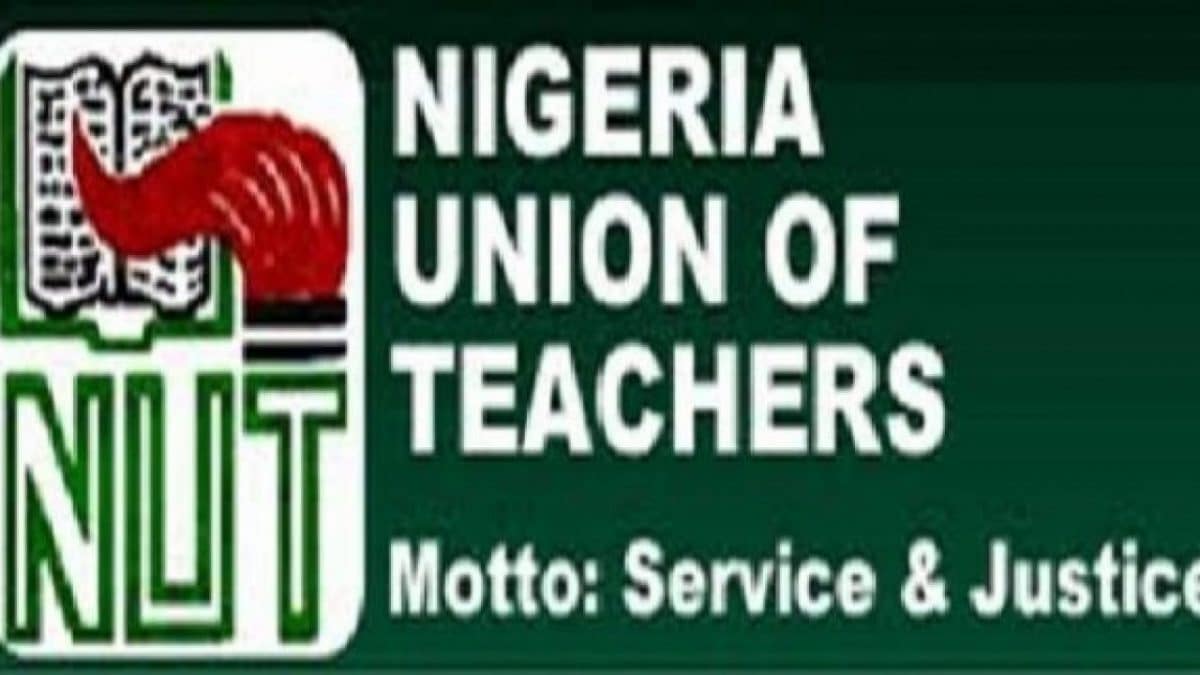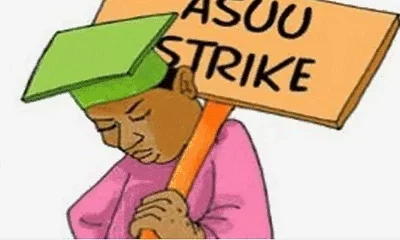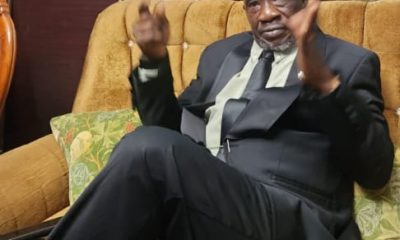Education
ASUU Strike: For Quick Resolution Refer Dispute to Chartered Institute of Arbitrators

By Aare Afe Babalola
Since the Academic Staff Union of Universities, ASUU, commenced its strike on February 14, 2022, there had been no headway in the resolution of its dispute with the Federal Government.
All reconciliation meetings held between the Federal Government and members of the Union had met brick walls.
With the end of its earlier warning strike ending on May 8, ASUU announced another “roll-over” 12-week strike action commencing on May 9, 2022.
The Union’s communique reads: “After extensive deliberations, noting Federal Government’s failure to live up to its responsibilities and speedily address the issues raised in the 2020 FG-ASUU Memorandum of Action, within the additional eight-week roll-over strike period declared on March 14, 2022, NEC resolved that the strike be rolled-over for 12 Weeks to give government more time to satisfactorily resolve all the outstanding issues.
Reactions: The National Association of Nigerian Students threatened to embark on a nationwide protest, to block all airport roads, disrupt political party primaries, and block the National Assembly until their voices are heard.
Several stakeholders, including the Aare Ona Kakanfo of Yorubaland, Iba Gani Adams, lent their voices in decrying the extension of the strike action and further called on the stakeholders to resolve it, citing the effect of any further strike on the students.
The Minister of Labour and Employment, reacting to the announcement of a further strike, noted that the action is being carried out in breach of the labour laws. In context, he reportedly stated as follows: “Ministry of Labour and Employment is not the direct employer of the university teachers.
The process is that whenever ASUU has a problem with the Federal Ministry of Education, which is their direct employer, the ministry will have to try and resolve it using its internal dispute resolution mechanisms.
So when there is a breakdown in negotiations, and I apprehend the dispute on my table, and the workers refuse to go back to their work while discussions are ongoing, it is a breach of the labour law. We had apprehended the ASUU strike, we did that on February 22, and we continued the conciliation on March 1.”
Why was ASUU established?
The Academic Staff Union of Universities, ASUU, was founded in 1978 primarily to demand the rights of academic staff in the country’s Federal and state universities. In carrying out this mandate, the Union has never shied away from embarking on warning and indefinite strike actions, as well as acting as a watchdog against corruption by its members who hold key positions in its member institutions.
Under the presidency of Dr. Oladipo Fashina, the Union petitioned the Independent Corrupt Practices Commission in July 2002 to investigate the University of Ilorin’s management for financial mismanagement and corruption.
In May 2008, the Union began a series of warning strikes to press a number of demands, including an improved salary scheme and the return of the pension system. In June 2009, the Union issued an indefinite strike order to its members at federal and state colleges across the country due to differences with the Federal Government over an agreement struck around two and a half years earlier.
The Union went on strike again on July 1, 2013, for five months and 15 days. The Union sought proper financing and the revitalisation of public universities, as well as the payment of their earned allowance, which was N92 billion in arrears. One thing is certain: the Union has always been outspoken in its opposition to what it sees as unfairness to its members, and it has been in the forefront of the fight for the revitalisation of public tertiary education.
It should be remembered that the proliferation of institutions in Nigeria drew the attention of ASUU leadership, who spoke out against what it dubbed “constituency initiatives”. According to reports, National President, Professor Emmanuel Osodeke, stated that: “Our position on that had been that the Federal Government is toying with the future of the society.
They are turning universities into constituency projects, where every village must have a higher institution; the purpose is not to have good universities and a good environment for academic excellence. Every politician wants to have a university in his village.
“This is not how a system is run. They are establishing a university of Medical Sciences and other specialised institutions, why not go and fund those old universities so that you can upgrade the Faculty of Medical Sciences to professional standards, so that Nigerian politicians, including the President, who usually go outside the country for medical attention, will have their medical issues solved here.
“But we will not do that; rather, the Federal and state governments are busy establishing mushroom universities. It is very unfortunate. But as a union, we are also thinking of what we can do in the future to compel them to stop this.
One of the things we did in the earlier agreement was that we agreed that the National Universities Commission, NUC, law should be reviewed to make it almost impossible for any governor or Federal Government to start a university without adequate preparation for funding for over 10 years.
But till now, that resolution has not been implemented. What we are saying is that the law should be reviewed to give NUC power to ensure that before you can start a university, you have to show good evidence that you can fund the system.”
To pursue its demands, the Union has always used warning and/or indefinite strike measures. Naturally, the Union’s strike activities have always elicited differing viewpoints and reactions from those directly or indirectly impacted. Government views the Union as too critical, with the covert goal of presenting the government as reluctant to give the country’s education system the financial attention it needs.
Parents see the Union as a serious hindrance to their children’s or wards’ academic advancement, and perhaps as a stumbling block in reaping their benefits of investing on their children. Regardless of how the Union’s strike actions are viewed, one thing is certain: at the end of the day, everyone loses. Professor Christopher Imumolen of Togo’s Global Wealth University once remarked that the strike actions are an “avoidable tragedy resulting from systemic failure and an injury consciously inflicted on the future of youths”.
The way forward: With the seemingly endless strike action embarked upon by ASUU, the need to resolve all its outstanding disputes with the Federal Government has become more imperative than ever. While litigation may be a far stretch, I highly recommend that the parties resolve their dispute through alternative dispute resolution mechanisms, particularly arbitration.
Arbitration is not only binding and enforceable between the parties, but also more flexible as it allows parties more level of control in the process. It is generally less expensive considering the relatively short length of time it takes from commencement to delivery of an Award. Furthermore, arbitral hearings are held in private settings and are attended only by those designated by the parties and their counsel, in contrast to trial proceedings held at the courthouse, which are open to the public.
It is highly more likely that the current fiasco between the Federal Government and ASUU will be more quickly resolved to finality if the dispute is referred to Arbitration by both parties, preferably to the Chartered Institute of Arbitrator.
For the sake of the students whose hope for a timeous conclusion of their education hangs in an unascertainable balance, I plead that the parties should quickly refer their dispute to arbitration where the parties will be bound by the findings and award of the arbitrators.
Afe Babalola (SAN) is a legal luminary.
Education
UNICAL VC Promises to Resolve Dentistry Students’ Crisis

From Ene Asuquo, Calabar
The Vice Chancellor of the University of Calabar, Prof. Florence Obi has promised that she would do everything humanly possible to ensure that the ongoing crisis in the institution’s Department of Dentistry, is resolved.
Prof.
Obi made the promise in Calabar during a press briefing, stressing that she will resolve the crisis before leaving office.She explained that the problem predates her administration, and pledged to intensify efforts to rectify the crisis.
She added that the crisis was as a result of the Medical and Dental Council of Nigeria (MDCN)’s refusal to induct 2016 Dentistry students of the institution.She also debunked claims circulating on social media that the institution’s Dentistry programme has lost its accreditation, describing the reports as “misinformation and distortion of facts,” clarifying that the programme remains fully accredited and no students have been directed to transfer to other universities.
“At no point did the University ask Dentistry students to seek transfers to other institutions, nor were they advised to ‘go and learn a trade’ as falsely alleged online,” the VC stated.
“I will feel very bad if I leave without solving this problem and the students are left hanging without knowing their fate. I won’t be fulfilled,” she said.
She reaffirmed the University’s commitment to ensuring all Dentistry students graduate and are duly licensed as dental surgeons.
She noted that the Dentistry programme commenced in the 2013/2014 academic session, and in November 2019, the University secured pre-clinical accreditation from the MDCN and full clinical accreditation was subsequently granted in December 2022.
The VC added that the university’s synergy and partnership with the Minister of Education and the Tertiary Education Trust Fund (TETFund) to upgrade its facilities.
“All we asked for is time to engage with other institutions, update the Medical and Dental Council of Nigeria (MDCN), and follow through on due processes,” she noted.
Speaking further, Obi said that some of the affected students demanded to be transferred to the Department of Medicine and Surgery but said it was not the solution as the department was already saturated.
She urged the affected students to remain calm, noting that the university was doing everything possible to resolve the issues before the end of her tenure.
Education
NUT Reaffirms Commitment to Teachers’ Professional Development in Kwara

From Abdullahi Abubakar, Ilorin
The Nigeria Union of Teachers (NUT), Kwara State Wing has restated its commitment to strengthening the professional growth of teachers across the State, to enhance the quality of education delivered in public schools. Speaking at the opening of a three-day capacity-building workshop in Ilorin, the State Chairman of the Union, Comrade Yusuf Wahab Agboola, noted that continuous training of teachers remains a vital component of educational reform and improved classroom delivery.
The training, organised in collaboration with the NUT National Secretariat, is targeted at selected teachers and focuses on the “Study Circle Conveners’ Model”—a grassroots strategy for enhancing peer-to-peer learning and participatory leadership within the education sector.
Comrade Agboola explained that the workshop aims to equip teachers with practical skills in collaborative learning, peer engagement, and innovative teaching practices. He expressed optimism that the training would promote professional bonding among teachers and foster collective solutions to challenges facing the education sector.Also speaking at the event, the National Coordinator of the NUT Study Circle Project, Comrade Solomon Igbelowowa, traced the initiative’s roots to 1985 when it was introduced in Nigeria by the Swedish Teachers Association, having recorded success in Sweden and other parts of the world. He commended the Nigerian Union of Teachers for sustaining the project over the years and urged participants to engage fully and make the most of the training opportunity.
The workshop was officially declared open by the National President of the NUT, Audu Amba, who was represented by the 3rd National Vice President, Bashir Oyewo.
He encouraged teachers to approach the sessions with dedication and punctuality.
Education
JAMB Sets 150 Cut-off Mark for University Admissions

By Tony Obiechina Abuja
The Joint Admissions and Matriculation Board (JAMB) has fixed 150 as the minimum cut-off mark for admission into Nigerian universities for the 2025/2026 academic session.
The decision was reached on Tuesday during the 2025 Policy Meeting on Admissions, held at the Bola Ahmed Tinubu International Conference Centre in Abuja, with stakeholders from various tertiary institutions in attendance.
According to JAMB, 140 was approved as the minimum score for colleges of nursing sciences, while polytechnics, colleges of education, and colleges of agriculture will admit candidates with a minimum score of 100.
“The minimum admissible scores for admissions for the next academic session have been fixed at 150 for universities, 100 for polytechnics, 100 for colleges of education, and 140 for colleges of nursing sciences by the stakeholders (Heads of Tertiary Institutions),” JAMB announced via its official X account.


























